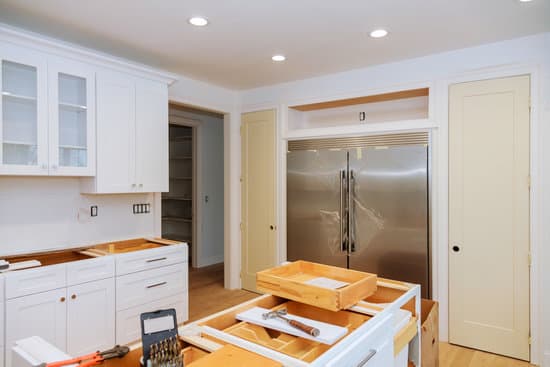Doing home improvement work without a license can lead to serious legal consequences for both homeowners and contractors. In this article, we will explore the risks and liabilities involved in performing home improvement work without a license, as well as the state regulations and laws regarding licensing. Additionally, we will discuss the benefits of hiring a licensed professional for home improvement projects and provide resources for checking and verifying contractor licenses.
Performing home improvement work without a license is not only illegal but also poses serious risks for both parties involved. Homeowners could face financial liabilities if unlicensed contractors are injured on their property, while contractors could be subject to fines or legal action for operating without proper licensure.
State regulations vary when it comes to home improvement licensing, so it is important for individuals to understand the specific requirements in their area. This includes any alternative options for non-licensed individuals to legally work in home improvement. Additionally, we will discuss the steps involved in obtaining a home improvement license and provide resources for verifying contractor licenses to ensure compliance with local laws and regulations.
Legal Consequences of Performing Home Improvement Work Without a License
Performing home improvement work without the proper license can have serious legal consequences for both the individual doing the work and the homeowners involved. It is important to understand the risks and potential liabilities associated with undertaking such projects without the necessary credentials. Below are some of the key legal consequences of performing home improvement work without a license:
- Fines and Penalties: In many states, working without a contractor’s license can result in hefty fines and penalties. These can range from a few hundred dollars to several thousand, depending on the severity of the violation.
- Lawsuits: If a non-licensed individual causes damage to a property or performs substandard work, they can be sued by the homeowner for damages. This can lead to costly legal battles and potential financial liability for the unlicensed worker.
- Criminal Charges: In some cases, engaging in contracting work without a license can be considered a criminal offense. This can result in criminal charges, including misdemeanor or felony charges, depending on the circumstances.
It is also important to note that homeowners who knowingly hire unlicensed contractors can also face legal repercussions. They may be held liable for any damages caused by the unlicensed worker, and may also be subject to fines for hiring an unqualified individual.
Ultimately, it is crucial to comply with state regulations and laws regarding home improvement licensing to avoid these legal consequences. This not only protects both contractors and homeowners from potential liabilities but also ensures that the work being performed meets professional standards of quality and safety.
Risks and Liabilities for Homeowners and Contractors
Performing home improvement work without a license can have significant risks and liabilities for both homeowners and contractors. For homeowners, hiring an unlicensed contractor opens them up to potential legal and financial issues if something goes wrong during the project.
Unlicensed contractors may not have the necessary skills or expertise to complete the work properly, leading to subpar results that could be costly to fix. Additionally, if an unlicensed contractor or their employees are injured on the job, the homeowner could be held liable for medical expenses and other damages.
For contractors, working without a license can lead to serious legal repercussions. In many states, performing home improvement work without a license is illegal and can result in fines, penalties, and even criminal charges.
Without a license, contractors also forfeit important legal protections and rights, making it more difficult to resolve disputes with clients and enforce contracts. Furthermore, unlicensed contractors may find it challenging to obtain insurance coverage, leaving them vulnerable to financial losses in the event of accidents or property damage during a project.
Here are some of the potential risks and liabilities associated with performing home improvement work without a license:
- Legal consequences such as fines and criminal charges
- Lack of legal protections for contractor-client disputes
- Exposure to financial liabilities in case of accidents or property damage
Overall, both homeowners and contractors can face serious risks when engaging in home improvement projects without proper licensing. It is essential for all parties involved to understand these potential consequences and prioritize compliance with state regulations regarding contractor licensing.
State Regulations and Laws Regarding Home Improvement Licensing
State-Specific Requirements
Each state has its own specific regulations and laws regarding home improvement licensing. It’s important for individuals to research and understand the requirements in their particular state before engaging in any home improvement work. Some states may require a license for certain types of projects, while others may have different criteria for obtaining a license.
Penalties for Unlicensed Work
In many states, performing home improvement work without a license can result in significant penalties, including fines and even legal action. Homeowners should be aware that hiring unlicensed contractors can also lead to consequences, as they may be held liable for employing non-licensed individuals to carry out work on their property.
Licensing Boards and Agencies
Most states have licensing boards or agencies that oversee the issuance and regulation of home improvement licenses. These organizations provide information on the requirements for obtaining a license, as well as resources for verifying the credentials of licensed professionals. It’s crucial for individuals to contact their state’s licensing board to ensure compliance with all regulations and laws related to home improvement licensing.
Understanding the state-specific regulations and laws regarding home improvement licensing is essential for both homeowners and contractors. It not only ensures compliance with legal requirements but also helps protect against potential risks and liabilities associated with unlicensed work. Additionally, staying informed about licensing regulations can ultimately help maintain the integrity of the home improvement industry.
Alternatives for Non-Licensed Individuals to Work in Home Improvement
While it is not advisable to perform home improvement work without a license, there are still some alternatives for non-licensed individuals to work in the home improvement industry. It is important to note that these alternatives may vary depending on the state or region, so it’s crucial to be aware of the specific regulations and laws in your area.
Working as an Apprentice or Helper
One alternative for non-licensed individuals to gain experience in home improvement is by working as an apprentice or helper under a licensed contractor. This allows individuals to learn the trade and gain valuable hands-on experience while working under the supervision of a licensed professional. Many states have specific requirements and guidelines for becoming an apprentice, so it’s essential to research and understand these regulations before pursuing this option.
Specialized Training and Certification
Non-licensed individuals can also consider obtaining specialized training and certification in specific areas of home improvement, such as electrical work, plumbing, or HVAC systems. While certification alone may not allow individuals to perform all aspects of home improvement without a license, it can still provide valuable knowledge and skills that can be utilized under the supervision of a licensed contractor.
Consulting and Design Services
For individuals who do not have a license but possess expertise in design or consulting services, offering these specialized skills can be another alternative within the home improvement industry. Providing consultations on interior design, landscaping, or project planning does not typically require a contractor’s license, allowing non-licensed individuals to utilize their skills and knowledge in a legal and ethical manner.
It’s important to remember that regardless of the alternative chosen, non-licensed individuals should always seek guidance from legal professionals or industry experts to ensure compliance with local regulations and laws. Ultimately, staying informed about available alternatives
Benefits of Hiring a Licensed Professional for Home Improvement Projects
When it comes to home improvement projects, hiring a licensed professional can make all the difference. Not only does a licensed contractor bring expertise and skill to the job, but they also provide a level of quality and assurance that non-licensed individuals simply cannot match. Here are some key benefits of hiring a licensed professional for your home improvement projects.
First and foremost, a licensed professional has undergone the necessary training and education to perform the work safely and effectively. This means that they have the knowledge and skills required to complete the job to industry standards, ensuring that your project meets all legal and safety requirements. Additionally, licensed contractors are often required to carry liability insurance, which protects both you as the homeowner and the contractor in case of any accidents or damages during the project.
Furthermore, hiring a licensed professional for your home improvement project can save you time and money in the long run. Because they have the know-how to get the job done right the first time, you won’t have to worry about costly mistakes or rework down the line. In fact, many licensed contractors offer warranties on their work, giving you added peace of mind and protection.
In addition to these benefits, working with a licensed professional also means that you have access to recourse in case of any issues or disputes. If a non-licensed individual were to perform work on your home and something goes wrong, you may find yourself without legal options for recourse. With a licensed professional, however, you can file complaints with licensing boards or take legal action if necessary.
| Benefits | Description |
|---|---|
| Expertise | A licensed contractor brings expertise and skill to the job |
| Liability Insurance | Licensed contractors often carry liability insurance for protection |
| Time and Money Savings | Trained professionals ensure no costly mistakes or rework needed |
Steps to Obtaining a Home Improvement License
In most states, individuals who want to work in home improvement as a contractor or professional are required to obtain a license. This process involves several steps and requirements that vary depending on the state. The first step in obtaining a home improvement license is to research the specific licensing requirements in your state. This can typically be done by contacting the state’s licensing board or visiting their website.
Once you understand the specific requirements for obtaining a home improvement license in your state, you will need to complete any necessary education or training programs. This may include courses in construction, building codes, safety regulations, and business management. Many states also require applicants to have a certain amount of on-the-job experience working in home improvement before being eligible for a license.
After fulfilling the education and experience requirements, you will need to submit an application for a home improvement license to the appropriate state agency. Along with the application, you may need to provide documentation such as proof of insurance, bonding, and financial responsibility. Some states also require applicants to pass a written exam testing their knowledge of home improvement laws and practices.
It’s important to note that working in home improvement without a license can result in legal consequences for both the individual performing the work and the homeowner hiring them. These consequences can include fines, penalties, and even criminal charges in some cases. Additionally, unlicensed contractors may not be able to obtain necessary permits for construction projects or obtain insurance coverage, leaving homeowners at risk for liability if something goes wrong during the project.
| Steps | Requirements |
|---|---|
| Research licensing requirements | Contact state licensing board |
| Complete education or training programs | Courses in construction, building codes, safety regulations |
| Submit application with documentation | Proof of insurance, bonding, financial responsibility |
Resources for Checking and Verifying Contractor Licenses
In conclusion, the importance of obtaining a license for home improvement work cannot be overstated. Not only does it ensure that the individual or company is capable and qualified to perform the tasks at hand, but it also protects both the contractor and the homeowner from legal consequences and liabilities. State regulations and laws regarding home improvement licensing vary, but in general, it is necessary to have a license for any significant work done on a property.
For homeowners considering hiring a contractor for home improvement projects, it is crucial to verify their licenses before entering into any agreements. This can be done by utilizing the resources available for checking and verifying contractor licenses. By taking the time to confirm that a contractor is properly licensed, homeowners can protect themselves from potential risks and ensure that they are working with a reputable professional.
Ultimately, while it may be tempting for individuals to attempt home improvement projects without a license, the legal consequences and liabilities far outweigh any potential benefits. To avoid unnecessary risks and ensure the job is done correctly and safely, it is best to hire a licensed professional for home improvement work. With proper research and attention to detail, homeowners can find trusted contractors who will provide high-quality results for their projects.
Frequently Asked Questions
Can You Sell a House With Unpermitted Work in Washington State?
Selling a house with unpermitted work in Washington State is possible, but it comes with its challenges. Buyers may have concerns about the safety and legality of the work, which could affect the sale process.
Can You Sell a House With Unpermitted Work in Colorado?
Similar to Washington State, selling a house with unpermitted work in Colorado is feasible but can make the process more complicated. Buyers may request that the necessary permits be obtained before proceeding with the purchase.
What Happens if You Don’t Pull a Permit in Massachusetts?
If you don’t pull a permit in Massachusetts for construction or renovation work, you could face fines or penalties from the local building department. Additionally, it may cause issues when trying to sell the property in the future if unpermitted work is discovered.

I’m thrilled to have you here as a part of the Remodeling Top community. This is where my journey as an architect and remodeling enthusiast intersects with your passion for transforming houses into dream homes.





